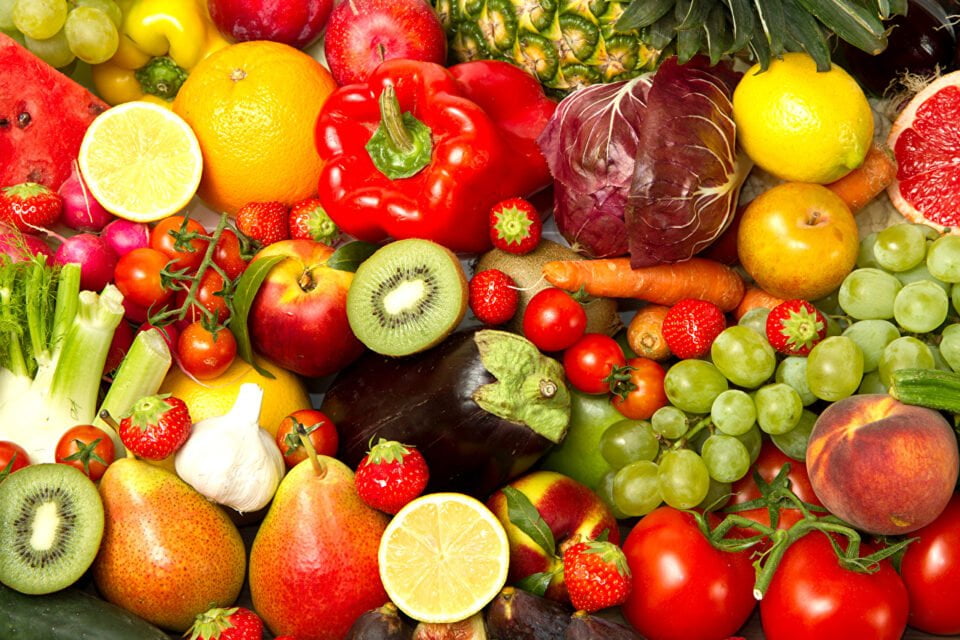On the eve of everyone’s favourite holiday New Year’s, the EastFruit team analyzed how the prices for fruits and vegetables have changed on wholesale markets over the past year in the countries of the region.
In Uzbekistan, the largest increase in prices in the capital city of Tashkent occurred for herbs and greenhouse bell peppers. Herbs prices increased by an average of 2.1 times and bell peppers cost 2 times more. Bell pepper prices on the domestic market of Uzbekistan went up due to a sharp increase in its exports mainly to Russia. Even the bans on supplies did not significantly reduce the prices of this product. Exports of Uzbek bell peppers for 11 months of 2020 in physical terms increased by 80%.
Pears are the leader in price growth among fruits. Prices for it increased by an average of 80% compared to the end of December 2019.
Table grapes this year are on average 60% more expensive although its production in 2020, according to official statistics, increased by 3.2%. Grape exports increased even more significantly by 18.8% in 11 months of 2020.
Read also: Why have vegetables and fruits become cheaper in Ukraine?
Citrus fruits, without which the New Year’s table in Uzbekistan is simply unthinkable, also significantly increased in price. Price increases for mandarins were 60% and for oranges 33%. The reason for the rise in citrus prices is the reduction in imports and the devaluation of the national currency. Orange imports to Uzbekistan for 11 months of 2020 decreased by 35% and mandarins by 3.3%. The exchange rate of the national currency of Uzbekistan for the year decreased against the dollar by about 9%, which is directly reflected in the prices of imported products expressed in Uzbek soums.
Banana prices increased slightly by only 2.1%; that is, the prices in dollars declined altogether. Not surprisingly, bananas are the best-selling fruit in Uzbekistan’s supermarket chains. As of December 1 of this year, Uzbekistan imported 31,900 tons of bananas from foreign countries. This is 3,400 tons less than in the same period last year. This year, bananas were imported to Uzbekistan mainly from Ecuador (29,800 tons). The decline in imports is due to a decrease in the purchasing power of the population and disruptions in logistics during lockdowns.
Apples are the only fruit analyzed that has become more affordable for the new year. Wholesale prices for apples decreased by 37.2% on average. This was facilitated by the good apple harvest in Uzbekistan this year.
Carrots became the leader in price growth for vegetables. The increase in prices for it was 36.1%. Potato prices increased by 25%. Even a sharp increase in imports by 60% in 2020 could not resist the rise in potato prices. Onion prices, on the other hand, decreased by 10% due to a good harvest.
Prices for greenhouse tomatoes and cucumbers also decreased on average by 5.5% and 13.6% respectively. The drop in prices for cherry tomatoes is especially noteworthy. Their prices have dropped by 65% compared to last year. This is a consequence of the increase in their production volumes. A couple of years ago it was difficult to find cherry tomatoes on the market, now its supply has increased significantly and consumers have already positively assessed the taste of these tomatoes. A decrease in prices for cherry tomatoes in the domestic market of Uzbekistan should help contribute to an increase in its consumption in the country since most consumers still look at this type of tomato with distrust not daring to try it.
The use of the site materials is free if there is a direct and open for search engines hyperlink to a specific publication of the East-Fruit.com website.




